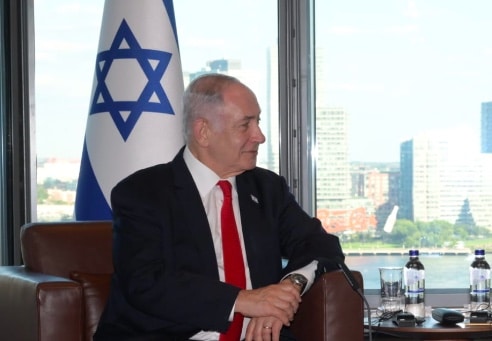Israeli Prime Minister Benjamin Netanyahu is set to have a long-sought meeting with President Biden on Wednesday in New York City.
The meeting will be the first between the two leaders since Netanyahu was elected to a sixth term in December, forming Israel’s most right-leaning government in its history.
The fact that the President is meeting with Netanyahu in New York City amid the annual United Nations General Assembly rather than at the White House is being viewed as a sign of displeasure by the Biden Administration for Netanyahu’s new government.
“Meeting at the White House symbolizes close relations and friendship and honor, and the denial of that shows exactly the opposite,” noted Eytan Gilboa, an expert on U.S.-Israeli relations at Israel’s Bar-Ilan University. He added that it’s likely to be a “sour” meeting between the two leaders.
The White House has offered few details about what it expects from the sit-down. However, the Administration has repeatedly raised concerns about the Netanyahu led-Knesset, or parliament, over its overhaul of Israel’s judiciary system which has greatly limited the ways judges can overrule the government.
The plan has bitterly divided Israelis, sparking massive protests that at times have crippled the nation.
In March, Biden chastised the overhaul, saying Israel “cannot continue down this road” and urged seeking a compromise. Since then, though, negotiations with Israeli opposition have stalled and Netanyahu’s coalition went ahead with the controversial legislation.
The Netanyahu government’s treatment of Palestinians has also drawn criticism from the Biden White House, particularly since far-right ultra-nationalists have greatly expanded settlement construction in occupied lands that Palestinians have claimed for a future state.
Tel Aviv opposes a two-state solution between the Israelis and Palestinians, which is a cornerstone of the White House’s Middle East policy.
On Wednesday, the White House said talks between Biden and Netanyahu would focus on “shared democratic values between our two countries and a vision for a more stable and prosperous and integrated region.”


